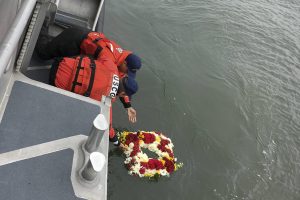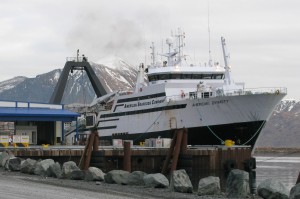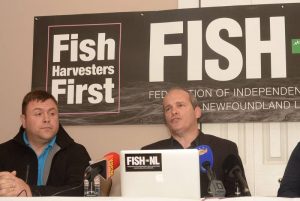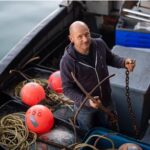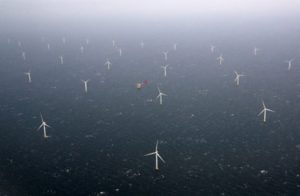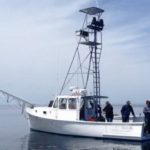Tag Archives: Malin Pinsky
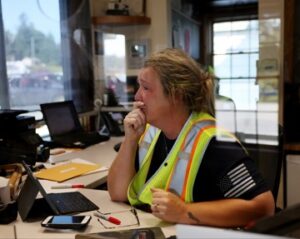
The ‘Lobster Trap’, Part II – Protests and Prayers
When she heard the news, in the middle of her shift selling tickets at the ferry terminal, Cathy Watt broke down in tears. The U.S. government had just ordered the unprecedented closure of a 1,000 square-mile swath of ocean off Maine’s coast to traditional lobster fishing for four months a year, starting in October. It was a crushing consequence of climate change: Warming oceans have hastened an endangered whale’s journey to the brink of extinction, and now Maine fishermen would pay the price. photos, video, part II of a series, >click to read< 09:49 ‘The Lobster Trap’ >click to read<
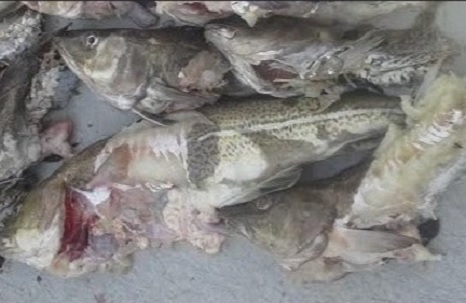
Changing environment may be to blame for reduced fish populations – Seals, Professor? Regulatory changes?
A new study aimed at determining how best to boost recovery of Atlantic cod has researchers pondering whether ongoing fishing and environmental changes, rather than evolution, are behind failed recovery of many stressed fish populations. (Seal predation?!!) Research published Monday, April 5 by Rutgers University, including genetic sequencing of this iconic species, offers major implications for ocean conservation, says Malin Pinsky, an associate professor in the School of Environmental and Biological Sciences at Rutgers University-New Brunswick. “Fish populations around the world have collapsed and many have not recovered,” said Pinsky. >click to read 09:43
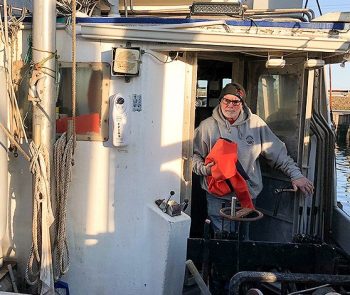
Warming waters spark marine migration, fish wars
The warming waters associated with climate change are creating big ripple effects across fishing communities, including in this picturesque seaside town with a long fishing history. Take Joel Hovanesian, who last fall docked his 40-foot trawler at the Port of Galilee, calling it quits after a 42-year career of chasing fish.,,, Up and down the Atlantic coast, commercial fishermen are heading for the exits these days, irked by government rules and regulations that they say haven’t kept pace with the changes. Fishermen have long battled over fish allocations, but the fights have become more intense and complicated due to climate change. As more fish head north in search of cooler waters, fishermen complain that quotas have not kept pace with shifting stocks, making it harder for them to make a living and bring fish to market. >click to read<15:46
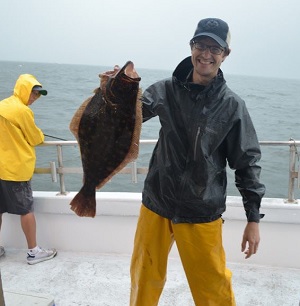
Climate change moving fish north, threatening turf wars, study says
World conflict is likely to increase over access to fisheries, as species move north in response to a warming ocean, according to a Rutgers University study published last week in the journal Science. “Seventy or more countries will likely have to start sharing with their neighbors” in coming decades, said lead author Malin Pinsky, including the U.S., Canada and Mexico.,, Gregory DiDomenico, executive director of the Garden State Seafood Association, said northern states such as New York argue they should now get a larger allotment for their fishing industries. He said allotments, which are set by the Atlantic States Marine Fisheries Commission and the Mid-Atlantic Fishery Management Council, are based on the history of landings by state. >click to read<23:32
Fish Distribution: Warmer waters shake up Shore fishing
 “Marine fish are very sensitive to a change in temperature — they can only survive in a narrow range, so they are seeking out cooler waters toward the poles and deeper in the ocean,” he said. “And deeper generally means farther from shore.” As the species shift north, fishing industries are hampered in making adjustments because federal fishing quotas that determine how much of each species can be caught are based on decades-old data. “The regulations are based on the idea that fish distributions are static. Read the rest here 11:06
“Marine fish are very sensitive to a change in temperature — they can only survive in a narrow range, so they are seeking out cooler waters toward the poles and deeper in the ocean,” he said. “And deeper generally means farther from shore.” As the species shift north, fishing industries are hampered in making adjustments because federal fishing quotas that determine how much of each species can be caught are based on decades-old data. “The regulations are based on the idea that fish distributions are static. Read the rest here 11:06

































